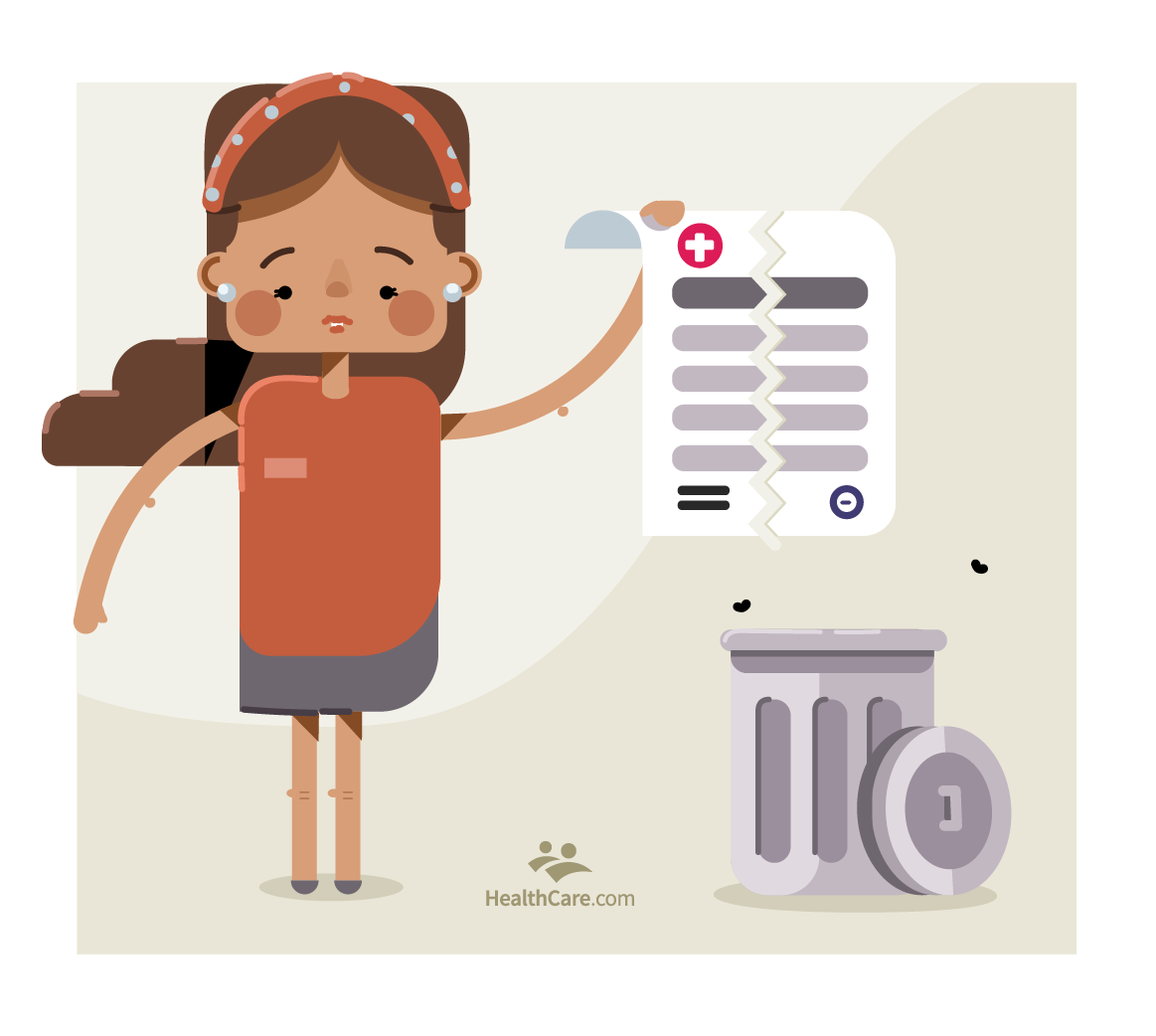Written by Hal Levy
Healthcare Writer
We want to help you make educated healthcare decisions. While this post may have links to lead generation forms, this won’t influence our writing. We adhere to strict editorial standards to provide the most accurate and unbiased information.
You should be relieved if your health insurance plan sends you a cancellation letter! Your health insurance cancellation letter may also be called a “non-renewal notice”. According to the federal government, people who switched plans in 2017 saved an average of $500.
It’s not your fault if your health plan dumps you. You’re simply free to choose a new health plan.

Should You Be Concerned That You Lost Your Health Plan?
The Affordable Care Act generally prevents major medical insurers from canceling plans. Insurers cannot dump you because you used too much coverage, or were rude on the phone.
Individual plans close all the time. If your plan is canceled, there should be no consequences. You won’t be viewed poorly by other insurers. You won’t have to pay for your previous medical treatment (except in super rare cases of fraud). However, living without any health insurance should concern you, especially if you need care.
What Does A Health Insurance Cancellation Letter Look Like?
Any letter from an insurer that says your current health insurance plan will no longer be offered counts as a cancellation letter.
Even if your letter includes an offer to join a new plan, you were still canceled on. Once you see that your plan is being shut down, it’s important to read your letter the whole way through.

The general rule is that you should get a cancellation notice from 90 to 180 days before your current coverage ends. This is plenty of time to join a new plan.
Choosing A New Plan Once Your Health Insurance Ends
Losing your plan entitles you to apply for insurance during a “Special Enrollment Period”. This means you’re automatically allowed to join any Obamacare health insurance plan.
Consumer Reports writes that folks “have assumed they have no choice other than to accept the automatic, and usually more expensive, replacement the company selected for them. Nothing could be further from the truth.”
Other people have to wait until the short Open Enrollment Period at the end of each year to switch plans. But if your health insurance is canceled, you don’t have to wait.
When To Choose A New Plan: You can sign up for a new health insurance plan 45 days before your current coverage ends, or 60 days after your current coverage ends. Mark your calendar! That’s a total of 105 days to get a new health insurance plan.
Even if your plan hasn’t expired yet, you can sign up for new coverage in advance. This means that you don’t have to risk it without health insurance.
If you sign up for a new plan by the 15th of the month, that plan will begin on the 1st of next month. Health insurance plans usually cancel coverage on the last day of the month for this reason.
Keep Your Mail: Make sure to keep a copy of your cancellation letter. Your new insurance company may need to have proof that you qualify.
If you can’t find your cancellation letter, you can ask for a new copy. Your new plan should be able to give you a grace period to produce the letter.
Be Careful When Joining A New Plan: Health insurance companies generally must offer you the option to join one of their most similar plans if they cancel your plan.
Do not let them sign you up for a rip-off replacement plan!
Now that you’re free to choice any plan, use a comparison site like HealthCare.com to find the most appropriate and reliable coverage in your area.
What If You’ve Been Automatically Re-Enrolled? Health insurance providers may sign you up for an ill-fitting plan.
Your Special Enrollment Period, in which you can compare ALL Obamacare plans, still exists if you’ve received a cancellation letter! By joining a different plan, you can cancel your automatic enrollment for a plan you didn’t want.
Why Are Plans Cancelled?
Corporate Issues: There are many reasons why a company would stop offering health insurance. Sometimes, your company leaves a town or an entire state because they have too few customers or doctors – even though your insurer continues to operate elsewhere. Other times, companies lose money and are stopped by local authorities before they go out of business.
Leaving School or A Job: Many folks receive cancellation letters when they leave their school or employer. This type of cancelation also occurs if you received coverage through a spouse or family member who has left their workplace.
For canceled work insurance, you can also look into COBRA. COBRA is a federal program that allows you to continue on your employee health plan for up to 36 months.
Insurers CANNOT Cancel Your Coverage Due To Health Conditions or Human Error: The Affordable Care Act bans “frivolous cancellations”. Insurers can no longer end your plan if you made a simple mistake on your insurance application.
The important thing to remember is that insurance plans must treat you the same as all their other customers, no matter what. They cannot end your coverage due to your age, characteristics, or health status. This applies to plans created before 2014’s Affordable Care Act as well.
What If You Can’t Afford A New Plan?
The sticker price of a new plan isn’t necessarily what you’ll pay. The Affordable Care Act has income subsidies that give monthly discounts of up to 100%. Health programs like Medicaid for people with low income are also available, although the exact requirements depend on your state.
Beginning in 2019, you won’t have to pay a tax penalty for going without Obamacare insurance. Consider a short-term health plan or a health sharing ministry. These cheaper plans are not equal to a major medical Obamacare plan, but they do provide some level of protection.
What if You Want To Cancel Your Plan?
Sure, you can cancel your existing health insurance plan before it expires. Most plans that you join on your own last for 12 months, or until the end of the year. You don’t need to give a reason to cancel.
We’ve prepared a complete guide to canceling your plan – whether it’s from your employer, Obamacare, Medicaid, or another provider.
If you cancel your plan on your own, without a reason, you do not earn the Special Enrollment Period that lets you sign up for any other health plan. However, you can enter a Special Enrollment Period for other reasons, such as moving to a new ZIP code.
That’s why it’s usually a good idea to stick with your health plan until the annual Open Enrollment Period begins. During open enrollment, you can choose a new plan without penalty.
Thank you for your feedback!








